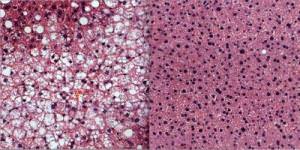Task Force Recommends Against PSA-Based Screening For Prostate Cancer
Following a period for public comment, the United States Preventive Services Task Force (USPSTF) released its final recommendation for prostate cancer screening. The Task Force now recommends against PSA-based screening for all men, regardless of age. The final recommendations are being published early online in the May 22 issue of Annals of Internal Medicine, the flagship journal of the American College of Physicians (ACP).
Calcium Supplements Linked To Significantly Increased Heart Attack Risk, Study Suggests
Calcium supplements might increase the risk of having a heart attack, and should be "taken with caution," concludes research published in the online issue of the journal Heart. Furthermore, boosting overall calcium intake from dietary sources confers no significant advantage in terms of staving off heart disease and stroke, the findings indicate.
Well-Connected Brains Make You Smarter In Older Age
Brains that maintain healthy nerve connections as we age help keep us sharp in later life, new research funded by the charity Age UK has found. Older people with robust brain 'wiring' -- that is, the nerve fibers that connect different, distant brain areas -- can process information quickly and that this makes them generally smarter, the study suggests.
How High Fat Foods Impact Diabetes And Metabolic Syndrome
A University of Michigan Health System study provides new clues about the health-damaging molecular changes set in motion by eating high-fat foods. A better understanding of the body's response to indulgent eating could lead to new approaches for treating diabetes and metabolic syndrome. High-fat foods can contribute to obesity, which increases the risk for developing type 2 diabetes.
Allergies? Some Pollens Are Much More Aggressive Than Others
There are pollens -- and there are pollens, as scientists from across Europe discovered while investigating the allergic potential of pollens from the three main triggers of hay fever in Europe: birch, grass and olive. Different people can have very different allergic reactions to a particular type of pollen, however, and as the Hialine study researchers have now found, the allergenicity of the pollens also varies. Depending on the time of year and region, the pollens produce different quantities of protein compounds. These are ultimately responsible for the allergic immune reaction.
Don’t Like Blood Tests? New Microscope Uses Rainbow Of Light To...
Blood tests convey vital medical information, but the sight of a needle often causes anxiety and results take time. A new device developed by a team of researchers in Israel, however, can reveal much the same information as traditional blood test in real-time, simply by shining a light through the skin. This optical instrument, no bigger than a breadbox, is able to provide high-resolution images of blood coursing through our veins without the need for harsh and short-lived fluorescent dyes.
Hunter-Gatherers And Horticulturalist Lifestyle Linked To Lower Blood Pressure Increases, Atherosclerosis...
Traditional "hunter-gatherer" and "horticulturalist" populations have significantly lower age-related increases in blood pressure and less risks of atherosclerosis than "modernized" populations. Lifestyle factors of these traditional populations -- high physical activity and high fruit and vegetable diets -- may protect against normal aging phenomena, high blood pressure and hardening of the arteries.
Coffee Drinkers Have Lower Risk Of Death, Study Suggests
Older adults who drank coffee -- caffeinated or decaffeinated -- had a lower risk of death overall than others who did not drink coffee, according a study by researchers from the National Cancer Institute (NCI), part of the National Institutes of Health, and AARP. Coffee drinkers were less likely to die from heart disease, respiratory disease, stroke, injuries and accidents, diabetes, and infections, although the association was not seen for cancer.
Extended Fasting Overrides Harmful Effects Of A High-Fat Diet
It turns out that when we eat may be as important as what we eat. Scientists at the Salk Institute for Biological Studies have found that regular eating times and extending the daily fasting period may override the adverse health effects of a high-fat diet and prevent obesity, diabetes and liver disease in mice.
High Doses Of Certain Dietary Supplements Increase Cancer Risk
Beta-carotene, selenium and folic acid -- taken up to three times their recommended daily allowance, these supplements are probably harmless. But taken at much higher levels as some supplement manufacturers suggest, these three supplements have now been shown to increase the risk of developing a host of cancers.

















